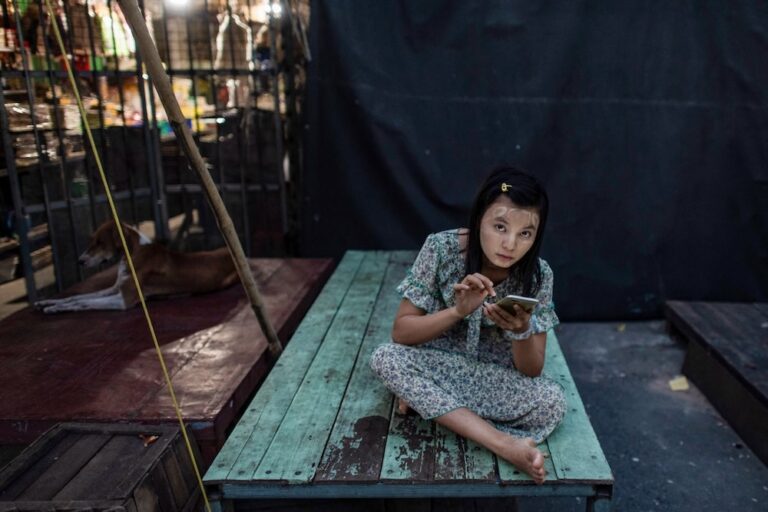(SEAPA/IFEX) – As thousands of ordinary citizens join some 3,000 monks and nuns in the streets of Rangoon and Mandalay on their seventh day of peaceful marches on 24 September 2007, the junta is warning the press from joining the protests, worried that journalists, too, may be emboldened enough by the deeply moving spectacle to […]
(SEAPA/IFEX) – As thousands of ordinary citizens join some 3,000 monks and nuns in the streets of Rangoon and Mandalay on their seventh day of peaceful marches on 24 September 2007, the junta is warning the press from joining the protests, worried that journalists, too, may be emboldened enough by the deeply moving spectacle to exercise their right to free expression in its most basic form
Major Tint Swe, the director of the Press Scrutiny and Registration Division, summoned journalists and editors from Rangoon-based periodicals to his office on 23 September and warned them from participating in the anti-junta protests that are gaining momentum by the day, reports the global organisation of exiled journalists Burma Media Association (BMA).
BMA said the order appeared to be a hasty response to the urging of a new group calling itself the Association of Journalists and Artists, for members of both professions to join what is turning out to be the country’s biggest protests in two decades.
A journalist told BMA: “All journals and periodicals were also ordered by the Information Ministry to carry an announcement in which we have to state that we are not a part of the association and not interested to take part in the protest.”
Actors have been similarly summoned and warned by the authorities, but that did not stop leading actor Kyaw Thu from offering the marching monks alms at the famous Shwedagon Pagoda in Rangoon on 24 September.
The junta has full control of all media and information distribution facilities, and imposes prior censorship to ensure that no dissenting views are allowed. Taking to the streets, which carries the risk of imprisonment and torture, is the last resort left to those with views unwelcome by the junta, which has shown no hesitation in cracking down on pro-democracy groups since it staged a bloody coup in 1988.
Over the past weeks, however, the monks, who are deeply revered in the Buddhist-majority nation, appeared to have paved the way for the long-repressed nation to express their unhappiness with the dictatorial rule. The monks have been marching every day since 18 September after the junta refused to apologise over a recent beating of a group of monks and violent suppression of public demonstrations against a fivefold hike in fuel prices in the impoverished country. More than 100 demonstrators remain in prison after they were arrested for joining the rare mass protests that started on 19 August.


